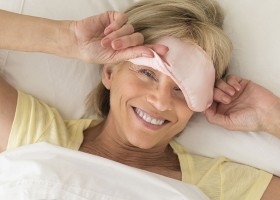
Sleep is crucial for all bodily functions and for optimal mental and physical health. Many factors can either hinder or promote a restful sleep. It is essential that healthy sleep hygiene habits are introduced on a nightly basis, to enhance the quality and quantity of sleep you will be getting. Some helpful tips and habits you can introduce daily include:
- Ensure that 80% of the week, you go to sleep at the same time. This is to ensure that you are establishing your circadian rhythm. Falling asleep at the same time most nights, will ensure you can fall asleep earlier and will also optimise the amount of melatonin your body produces.
- Limit light exposure at least 30-60 minutes before going to bed. This includes avoiding exposure to mobiles, television, laptops, and computers. If the use of these gadgets is essential, ensure the white screen is switched to low or use a bluelight filter app. The white light on these screens prevents optimal melatonin from being produced and thus, it will make it difficult to fall asleep and stay asleep.
- Provide a relaxing environment in the bed room. Our bedrooms are a place of rest. Avoid eating, heavy reading, watching television, or working in the bedroom. Associating our bed room only with rest, will train our body to unwind once we are in bed. Dimming the bedroom lights and utilising essential oils can also provide for a relaxing environment and reduces stimulation to our body.
- Avoid stimulants after 2pm. Stimulants include anything that is caffeinated such as coffee, green tea, black tea and coca cola. Not drinking these beverages after 2pm, will prevent your body from being overstimulated and this will assist with allowing you to unwind before bed.
- We all associate over eating with preventing quality sleep however, under eating or, going to bed hungry can also limit the quality of sleep we have. It is best to consume your last meal around 2 hours before going to bed.
- Limit alcohol consumption. Although alcohol is a depressant (acts in the opposite way to caffeine), over consuming it prior to going to sleep can interfere with our sleep wake cycle and limit quality and quantity of sleep.
- Include tryptophan containing foods. These include, dairy milk, pumpkin and pumpkin seeds, turkey, squash, chia seeds and beef. Tryptophan is a precursor to melatonin, a hormone that is produced when there is darkness and controls our sleep wake cycle (circadian rhythm).